Gazza at 50: Free spirit with a self-destruct button
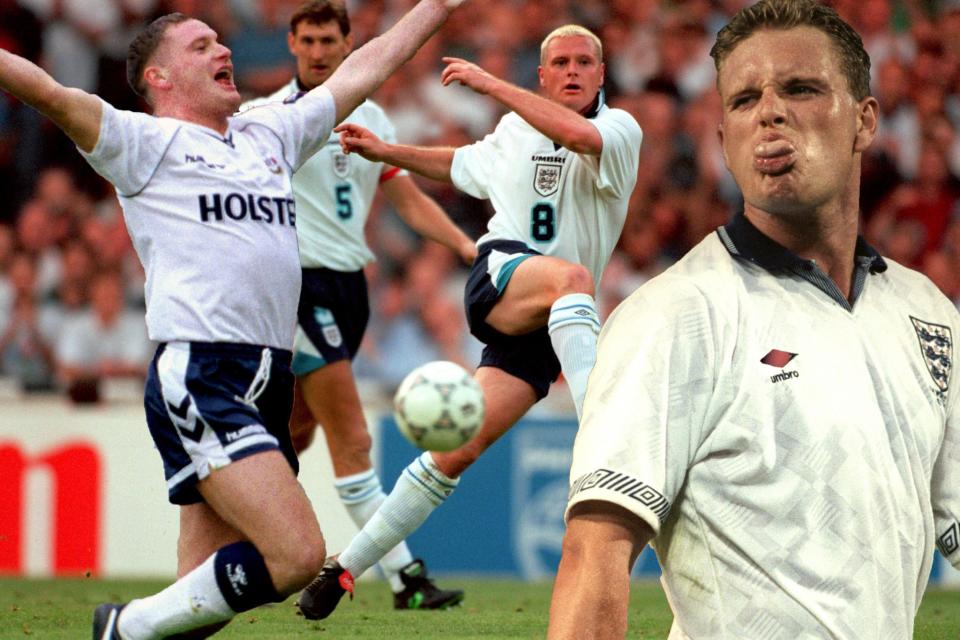
As a footballer, Paul Gascoigne was a one-off – a uniquely talented free spirit who threatened to take the game by storm.
That he did not scale the heights his God-given ability suggested he should was due in part to injury and a complex personality which would not – and seemingly still refuses to – be tamed.
But, as he celebrates his 50th birthday – a milestone many feared he may never reach as his demons repeatedly took control – football can reflect upon a man who more than most embodied the glorious freedom of expression it allows its greatest exponents to demonstrate.
Gascoigne was a man who combined outrageous individual skill with a rare football intelligence to breathtaking effect.
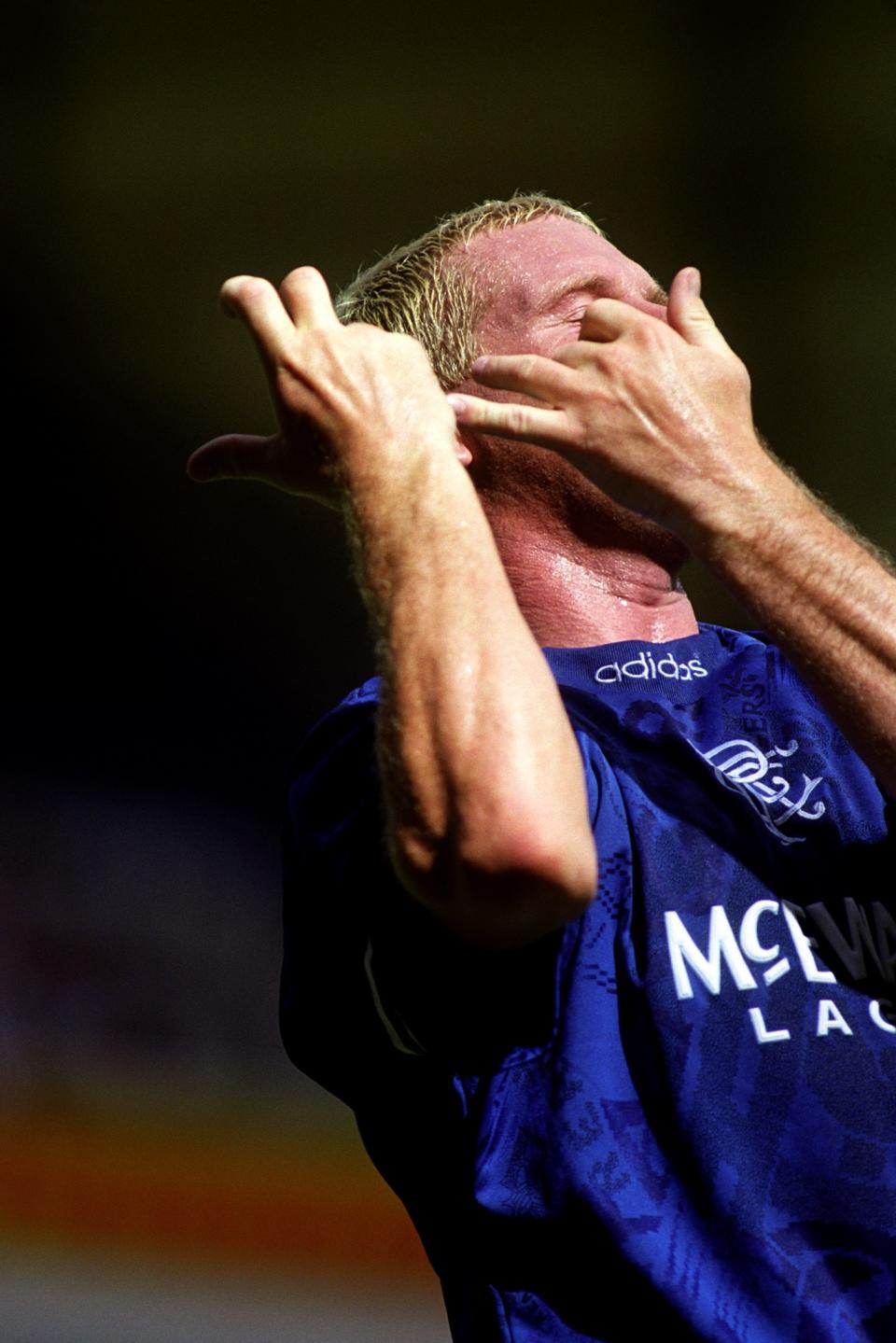
Who could not marvel at the sight of the barrel-chested Geordie carving his way through a mesmerised defence with a deftness of touch, purpose and assurance possessed by only the very best?
There was a poise, too, and a killer instinct. He was no show-pony. The tricks and flicks were not just ostentation, but a mouth-watering means to an end.
However, also key to the Gascoigne equation was a more mundane, but equally priceless capacity for industry and a commitment to the team ethic which further enhanced his more poetic qualities.
Fondly described by Bobby – later Sir Bobby – Robson as “daft as a brush”, the then England manager knew what a talent he had on his hands and nurtured it to the point that, as the Three Lions went close to emulating their still lone success in 1966 at Italia ’90, the 23-year-old to whom he had handed a key role in his team had the world at his feet.
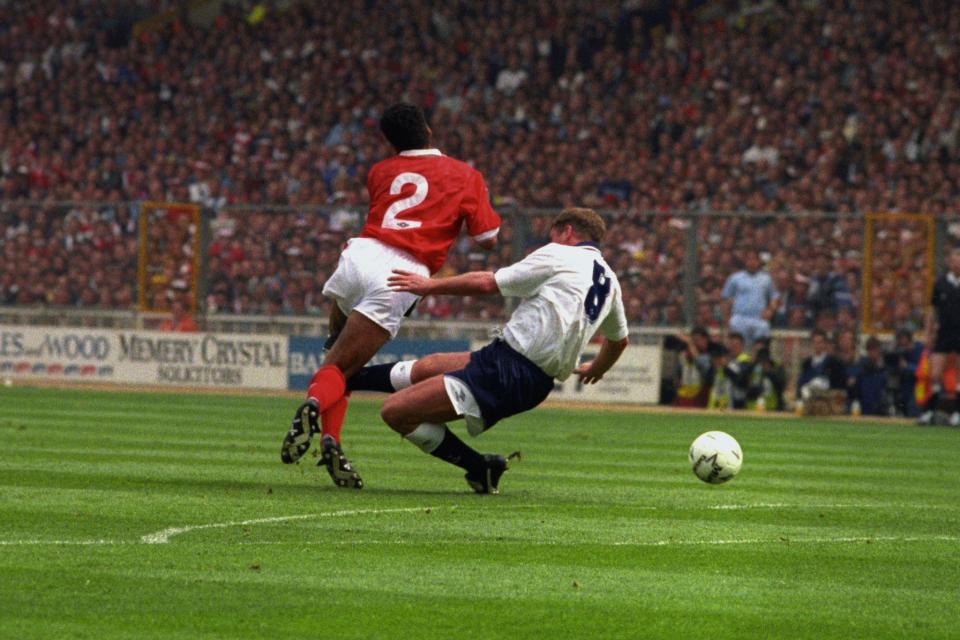
Gascoigne had emerged from the ranks at Newcastle as a precocious teenager under World Cup winner Jack Charlton, and swiftly demonstrated that he was more than just a cocky and hyperactive 17-year-old with an eye for mischief.
Charlton took him in hand, ordering a local tea room not to indulge the teenager as he attempted to steer him away from a diet which had previously relied heavily on junk food, and the rewards were pleasing to say the least.
Thrust into the midst of a squad which included Chris Waddle and Peter Beardsley, he did more than simply keep his head above water.
Gascoigne, like Alan Shearer after him, was adored by those who grew up on the same streets and he in turn revelled in the adulation of his peers.
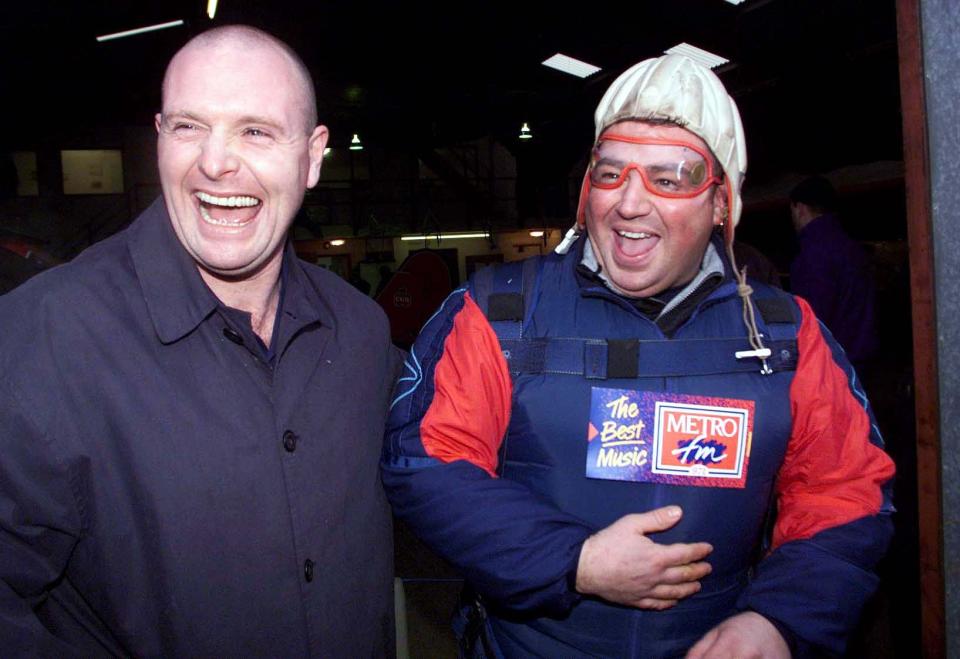
But, like Waddle and Beardsley, his future was to lie away from Tyneside, with Tottenham paying £2.3million to take him to north London during the summer of 1988, and Lazio, Rangers, Middlesbrough and Everton all enlisting his services before a career which brought 57 senior England caps hit its downward slope.
Injuries played a depressingly recurring role in Gascoigne’s career, none more so than the cruciate ligament rupture he suffered during the 1991 FA Cup final victory over Nottingham Forest which delayed his move to Lazio by a year.
However, his on-field problems paled into insignificance alongside the the anxieties and excesses which have blighted much of his life.
Gascoigne, who admits to an enduring fear of death, was deeply affected when Steven Spraggon, the younger brother of childhood friend Keith, was killed in a road accident, and he has suffered from an inability to sleep and physical tics for almost as long as he can remember.
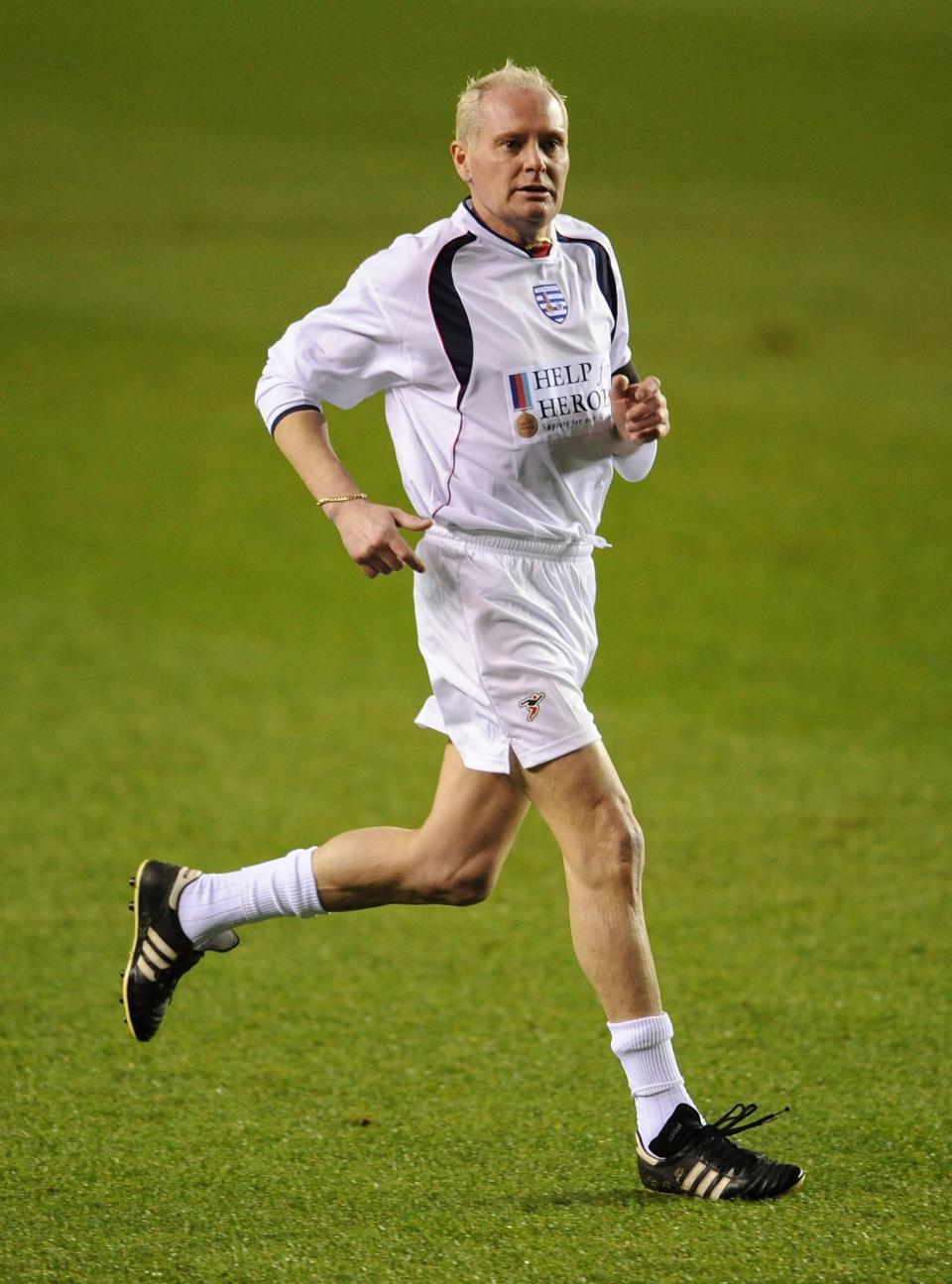
He has also been plagued by obsessions and compulsions which have at times led to an over-reliance on prescriptions drugs and, more damagingly, alcohol addiction and briefly, cocaine use – none of which made for an orderly private life which at its nadir and, to his shame, descended into domestic violence.
In many senses, football was his salvation, and its loss as his career ebbed away presented Gascoigne with a new challenge.
In is autobiography, ‘Gazza, My Story’, he wrote: “But for football, I know I would be in a far worse state than I am today.”
It is a frank admission and it is difficult to escape the conclusion that Gascoigne, but for the issues which distracted him throughout his career, might have achieved even more on the field.
He wrote: “Let’s say I fulfilled my dreams, but I didn’t fulfil my potential.”
Perhaps he did not, but as he enters his sixth decade, he is remembered as a genuine superstar nonetheless and few would wish him anything less than the contentment for which he has searched in vain for much of his life to date.
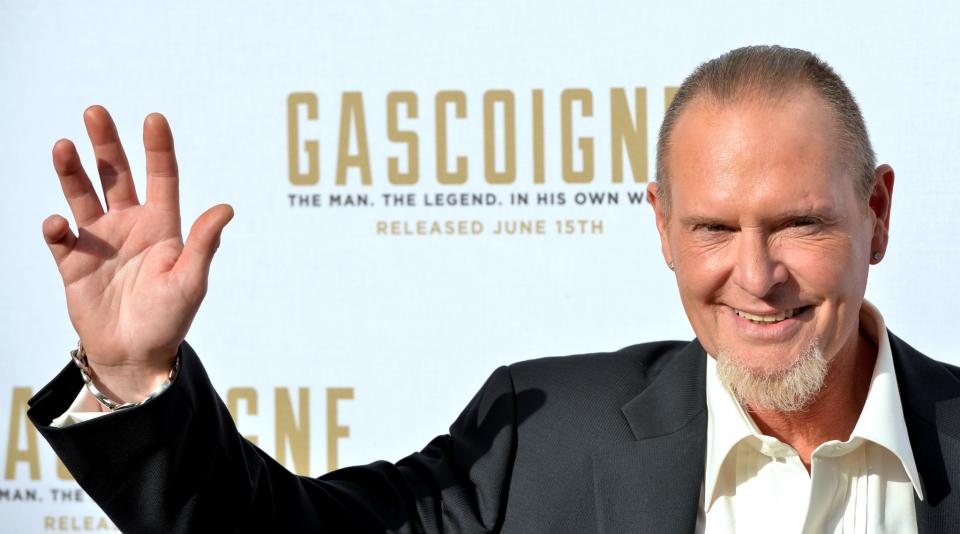

 Yahoo Sport
Yahoo Sport 






































